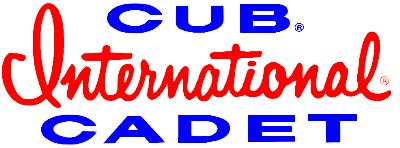KEN - One morning Dad & I heard sirens blaring about two miles away, we jumped in the pickup and went looking for the fire, pretty unusual for Dad to waste time like that. Neighbor had blown haylage that was too wet into their barn and it was starting to smolder. They were getting ready to start digging it out of the barn, had all the fire trucks and water trucks setting in the yard. That was the ONLY time I ever ran a Farmall 656 diesel pulling a water wagon from the neighbor's. All I could think of was, "Man, this makes our old 450 look nice!", I thought the D282 glow-plug engine was pretty crude. ANYHOW, they saved the barn, but lost all the haylage and most of the rest of the hay that was in the barn. I forget what they used to dig it all out with, loader tractors I think. Another neighbor had the same thing happen to his corn crib filled with too wet shell corn. Dad went over with the M & loader to dig some of that out. They cut huge holes thru the steel mesh siding and dug the corn out, scattered it around the barn yard so the fire dept. could spray it.
I think the NH mower/conditioners were known has "Haybines", they still bring good money at farm sales. I've never really heard of a BAD piece of NH hay equipment. And like you said, Never heard of a GOOD piece of Green hay equip., except maybe the old #5 sickle mowers. Some people say their new round balers are O-K.
I remember Dad pricing a new IH pull-type 9 ft sickle mower, think it was a model 1300, which was the incentive to get the cutting torch out and modify the Brillion to mow hay. The right side plate unbolted, and Dad cut the angled right rear corner plate off his & the neighbor's mower and welded tabs on so it could be bolted back on to chop stalks & clip pastures.
I'd run the old sickle mower with everything from a '39 H, '54 Super M-TA with live hyd, & LPTO, & power streering, and the '54 Super H, and the Super H ran it best, at least for me, I could mow as fast with it as the SM-TA on about half the gas, hitting the clutch stopped the tractor & PTO but not the hyd, I could clear a plug on the sickle in seconds compared to a minute with either the '39 H or SM-TA. As long as I had a tractor radio blaring I was happy! We even pulled the neighbor's IH #37 baler one afternoon with the Super H to make a couple loads of hay. It actually did a really good job. The #37 was a PTO powered baler, his old IH #55T had the IH 113 CID engine from an A,B, or C on it for power. I'd rake up some MONSTER windrows for it some times. I had to learn how to rake hay all over again when he got the #37.
The old Super H was our haying tractor, mowed, raked, hauled in, 30 HP did everything. You have to keep in mind this was all 40 yrs ago, people still "Touched" the hay bales with gloved hands on the twines.
The new disc mowers pull MUCH harder, plus guys pull them as fast as they can drive and stay in the seat. You need 100 HP to make hay now. A neighbor here has a BIG green baler that makes big square bales, about 4 ft X 5 ft X 6 ft. He pulls it with a 150-175 HP FWA tractor with duals.And a cab of course!




